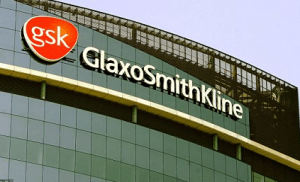GSK schools analytical chemists on drug development
 GlaxoSmithKline (GSK) Pharmaceutical Company has started a one week training workshop for African analytical chemists to equip them with practical skills in Gas Chromatography-Mass Spectrometry (GC-MS).
GlaxoSmithKline (GSK) Pharmaceutical Company has started a one week training workshop for African analytical chemists to equip them with practical skills in Gas Chromatography-Mass Spectrometry (GC-MS).
GC-MS is a widely-used analytical technique classified as crucial for environmental monitoring and drug development.
The training, under a new five-year partnership between GSK, the Royal Society of Chemistry (RSC) and Pan Africa Chemistry Network (PACN), is being rolled out for over 400 scientists from Ghana, Nigeria and Ethiopia, with observers from other countries across the continent also participating.
The programme, which also serves as trainer of trainers, aimed to equip the local chemists to train others leaving a self-sustaining project and a lasting legacy in African science.
The workshop is being held at the Kwame Nkrumah University of Science and Technology from June 6 to 10.
Professor Kwasi Obiri Danso, the Provost of the College of Science, and incoming Vice Chancellor of KNUST, commended the organisers; PACN, RSC and GSK, for choosing Ghana as a venue for the training programme.
“We also thank these bodies for providing the Department of Chemistry with a solar inverter valued for over GH¢42,000.00 to be used as back-up for the electricity supply for the GC-MS and other equipment.
“We hope that this training programme will foster a continued collaboration between our university, the PACN, the Royal Society of Chemistry and GSK.
“We also hope that similar training programmes in the use of other equipment and analytical techniques will be developed in the future in order to build the capacity of our staff and students for effective research,” he said.
Dr Genevieve Adukpo, a senior lecturer in the Department of Chemistry, University of Cape Coast, who is a participant, explained the importance of mastering the analytical technique for local scientists.
“Recently there has been a lot in the news about the adulteration of processed food on the Ghanaian market. So we have to keep checking the food for contaminants, and without these analytical instruments it is difficult.
“In Ghana we are having a lot of problems at the moment, and the programme is important in helping us to solve our own local problems and challenges,” Dr Adukpo said.
Ms Judith Gregory, Principal Scientist in NPD Skin Health at GSK, explained that as a leading research-based pharmaceutical and healthcare company the pharmaceutical giant is committed to improving the quality of human life by enabling people to do more, feel better and live longer.
GSK is therefore investing in Africa to increase access to medicines, build capacity and deliver sustainable growth.
She said Africa had long borne the highest rates of infectious diseases and now faced growing incidences of non-communicable disease (NCD) too. This dual health burden posed a significant obstacle in economic and social development.
“GSK is investing at least £100 million in Africa over the next five years. We are investing £25 million to create the world’s first Africa Open Lab for NCD research, where GSK scientists and external researchers will work together to improve understanding of NCD variations in African patients,” she said.
“These training programmes are delivered by a dedicated group of highly-experienced volunteers, and GSK’s involvement will make the delivery model more sustainable through the implementation of a train-the-trainer model, developing the African scientists into trainers themselves,” Ms Gregory said.
The PACN was established in 2007 by the Royal Society of Chemistry and African scientists to provide support for researchers across sub-Saharan Africa. As part of this, the network launched its own training programme in GC-MS which has trained more than 100 African scientists.
The Royal Society of Chemistry is a UK non-profit professional body for chemical scientists which seeks to promote chemical sciences for the benefit of science and humanity.
Source: GNA
